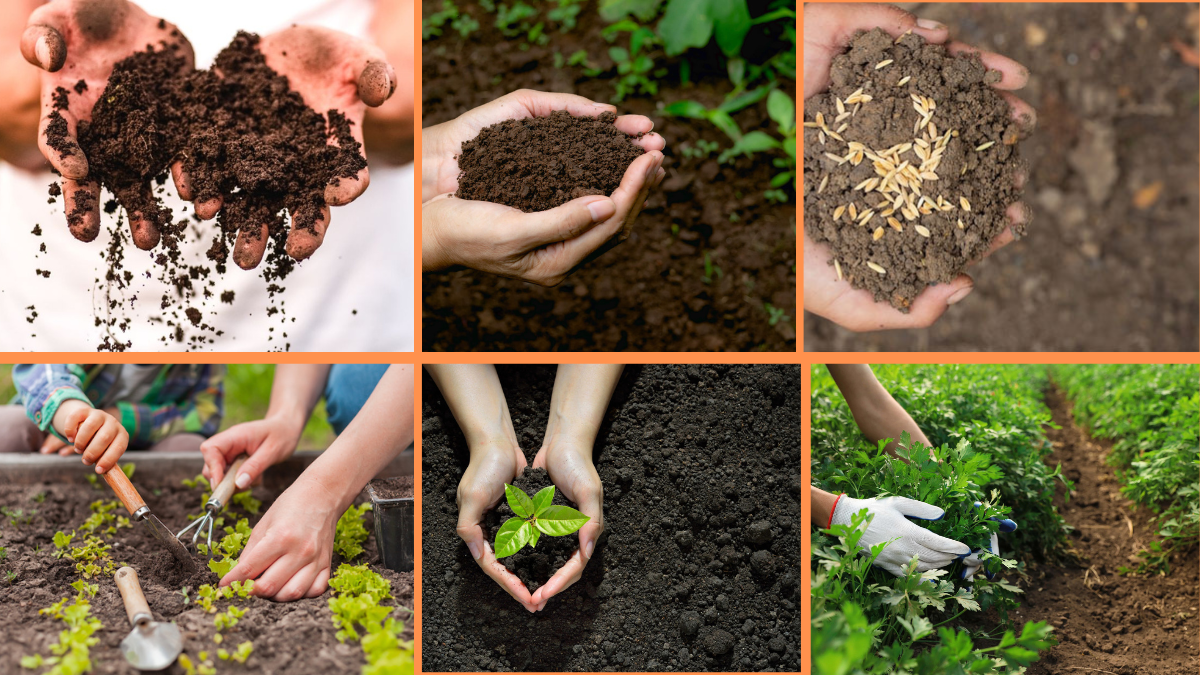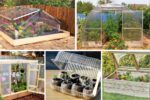A flourishing garden begins with healthy, nutrient-rich soil. Whether you’re growing flowers, vegetables, or shrubs, the foundation of every thriving plant lies beneath the surface. Soil isn’t just dirt — it’s a living ecosystem teeming with microorganisms, organic matter, and minerals that support plant growth.
However, continuous planting, weather changes, and improper care can deplete soil quality over time. The good news? You can improve your soil naturally without relying on harsh chemical fertilizers. Let’s explore 10 effective, organic methods to boost soil quality and nurture a healthier, more productive garden.
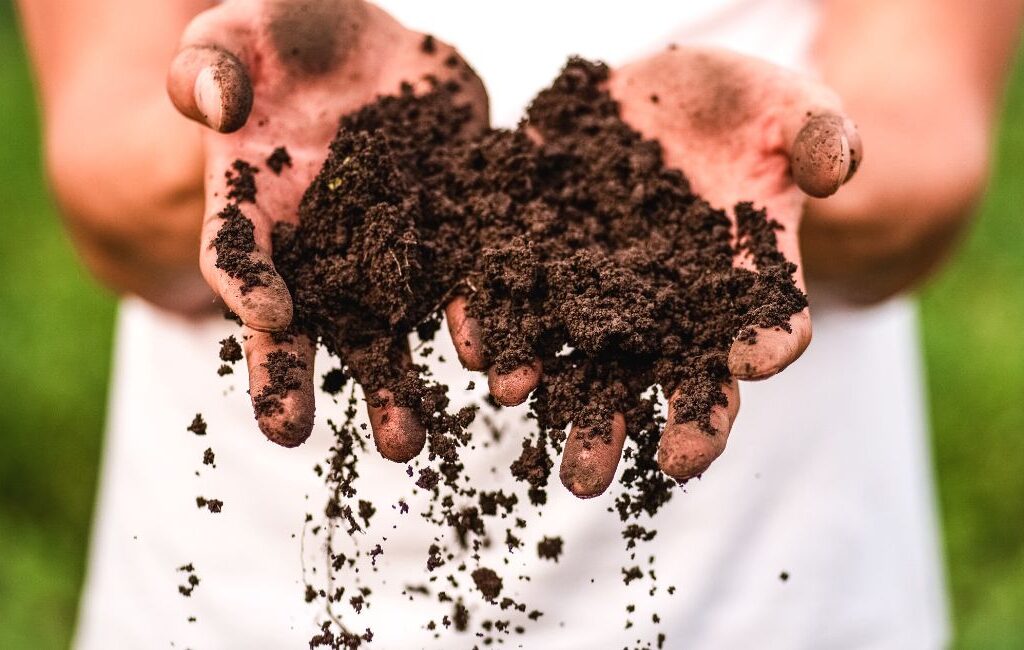
1. Add Organic Compost Regularly
One of the most effective ways to naturally enhance soil is by adding organic compost. Compost is decomposed organic material made from kitchen scraps, grass clippings, leaves, and garden waste.
Benefits of compost:
- Increases soil fertility by adding essential nutrients
- Improves soil structure and aeration
- Boosts water retention in sandy soils
- Helps break up heavy clay soils
How to use:
Spread a 2-3 inch layer of compost over your garden beds and gently work it into the topsoil. Repeat this process twice a year — in spring and fall — for optimal results.
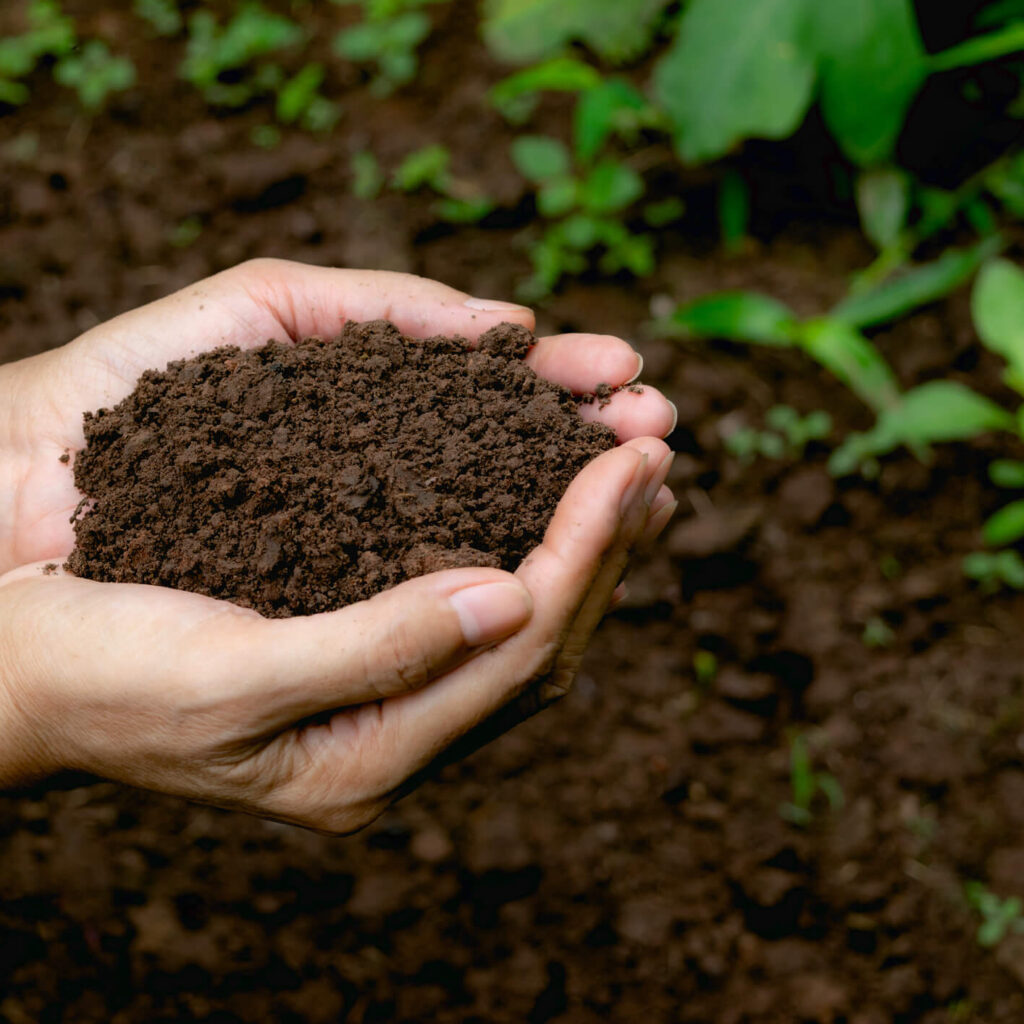
2. Incorporate Green Manures and Cover Crops
Green manures, also known as cover crops, are plants grown specifically to improve soil health rather than for harvest. Popular options include clover, alfalfa, ryegrass, and buckwheat.
Why they work:
- Fix nitrogen into the soil
- Suppress weed growth
- Improve soil structure with deep roots
- Prevent erosion during off-seasons
Tip:
Plant cover crops in empty beds after your main crops are harvested. Turn them into the soil before they flower to decompose and release nutrients.
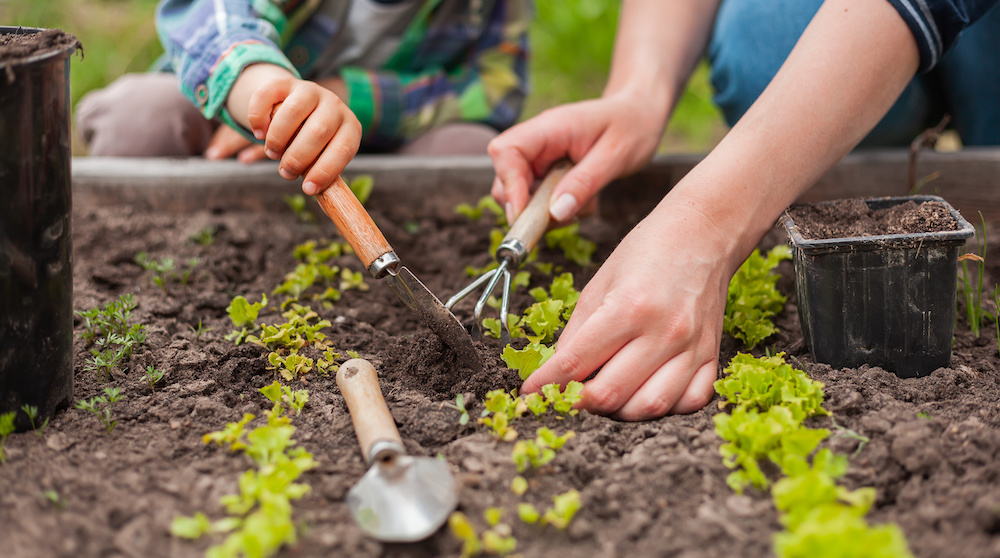
3. Use Mulch to Protect and Feed the Soil
Organic mulch, like straw, wood chips, shredded leaves, or grass clippings, offers multiple benefits to soil health.
Benefits include:
- Retaining moisture
- Suppressing weeds
- Regulating soil temperature
- Adding organic matter as it decomposes
Apply a 2-4 inch layer of mulch around your plants and replenish it regularly as it breaks down. Avoid piling mulch directly against plant stems to prevent rot.
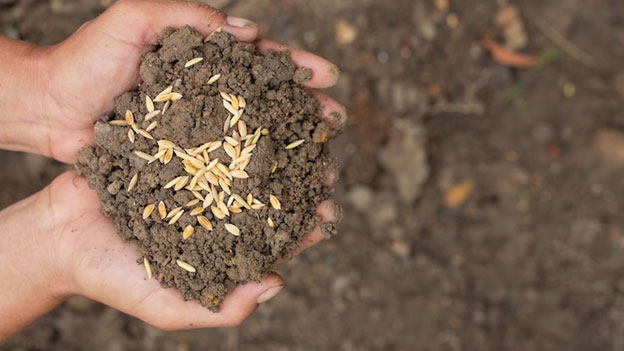
4. Encourage Earthworms and Soil Microorganisms
Healthy soil is alive, filled with beneficial organisms like earthworms, bacteria, and fungi. These creatures break down organic matter, aerate the soil, and improve nutrient availability.
Ways to attract them:
- Avoid synthetic pesticides and chemical fertilizers
- Regularly add compost and organic mulch
- Maintain moderate soil moisture
- Avoid frequent tilling, which disrupts soil life
You’ll notice richer, crumbly soil and healthier plants when these natural allies are thriving underground.
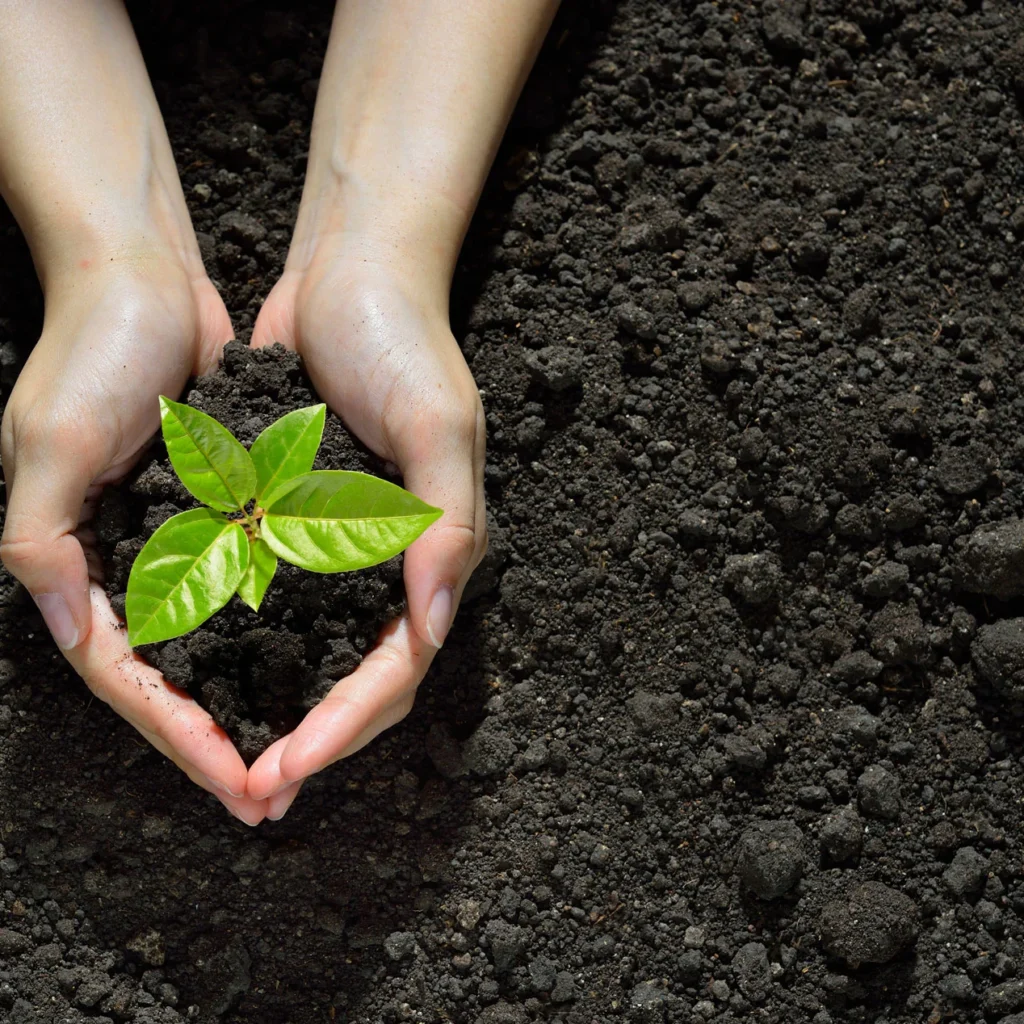
5. Rotate Crops and Plants Seasonally
Crop rotation is an age-old farming technique that prevents soil depletion and pest buildup by changing what you plant in each garden bed every season.
Benefits:
- Maintains balanced nutrient levels
- Reduces risk of soil-borne diseases
- Prevents pest populations from establishing
For example:
- Follow heavy feeders like tomatoes with legumes that fix nitrogen (beans, peas).
- Alternate root vegetables with leafy greens.
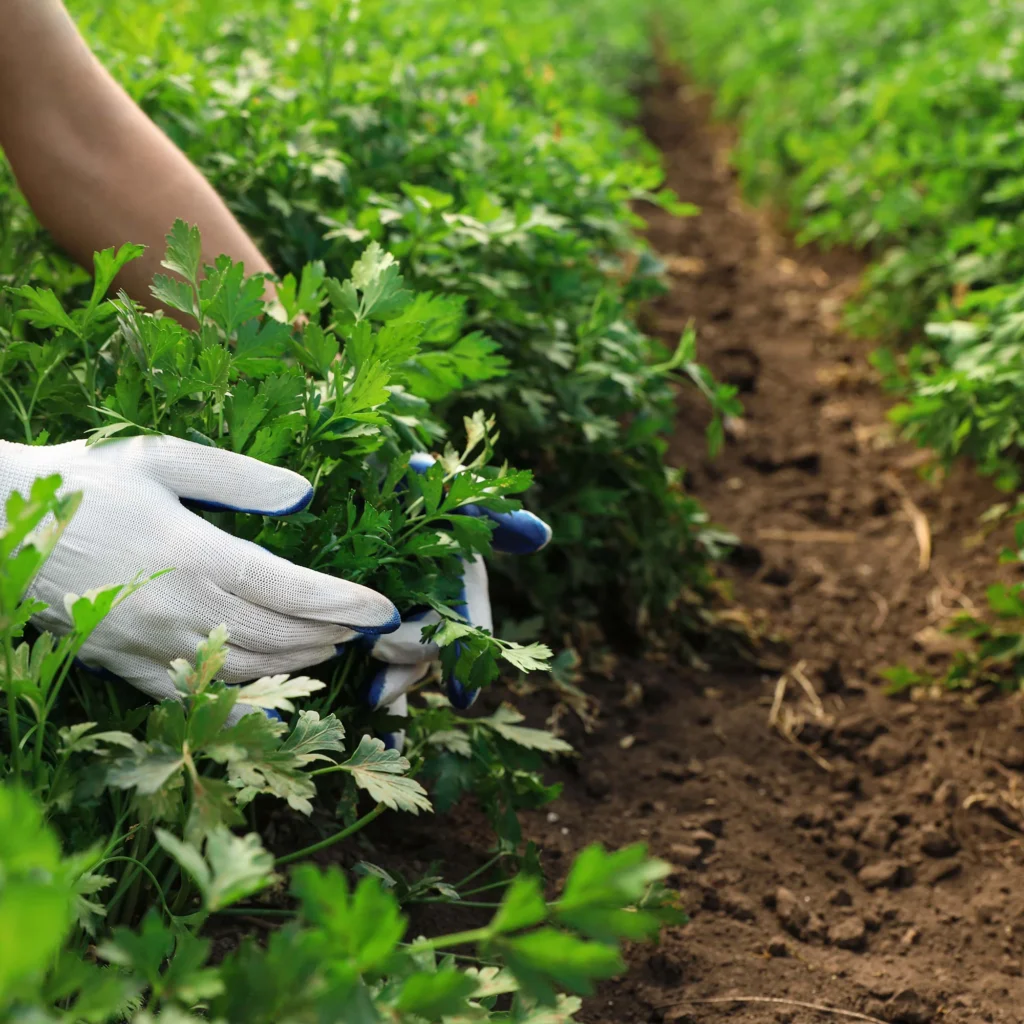
6. Use Natural Soil Amendments
In addition to compost, consider adding natural amendments based on your soil’s specific needs. You can get a soil test done through your local extension service or garden center.
Common organic amendments:
- Bone Meal: Adds phosphorus for root growth and flowering
- Blood Meal: Boosts nitrogen for leafy plants
- Kelp Meal: Provides trace minerals and growth hormones
- Rock Phosphate: Long-lasting source of phosphorus
- Gypsum: Loosens clay soils and adds calcium
Apply amendments according to package directions or expert advice based on your soil test results.
7. Practice No-Dig or Minimal Tillage Gardening
Over-tilling or frequently turning the soil can disrupt soil structure and harm beneficial organisms. Many gardeners are adopting no-dig or low-till methods to preserve soil health.
Advantages:
- Keeps natural soil layers intact
- Encourages deeper root systems
- Retains moisture
- Supports the soil’s microbial ecosystem
Instead of tilling, top-dress garden beds with compost and mulch, allowing worms and microorganisms to naturally integrate organic matter into the soil.
8. Water Wisely and Efficiently
Overwatering or underwatering can negatively affect soil health. Excessive water compacts soil and washes away nutrients, while too little leads to dry, compacted earth.
Tips for better watering:
- Water deeply but infrequently to encourage deep root growth
- Use soaker hoses or drip irrigation to minimize surface runoff
- Water early in the morning to reduce evaporation
- Avoid letting soil become completely dry or overly soggy
Consistent, moderate moisture is key to maintaining healthy, crumbly soil.
9. Use Kitchen and Garden Waste Creatively
Instead of throwing away organic waste, repurpose it directly in your garden. Items like banana peels, eggshells, coffee grounds, and vegetable scraps are rich in nutrients.
Ideas:
- Bury small amounts of chopped kitchen waste in empty beds during off-seasons
- Sprinkle crushed eggshells around plants to add calcium
- Use coffee grounds to enrich acid-loving plants like azaleas and blueberries
This direct recycling method gradually improves soil quality without commercial products.
10. Apply Natural Liquid Fertilizers
For a quick nutrient boost, use organic liquid fertilizers like compost tea, seaweed extract, or fish emulsion. These not only feed your plants but also nourish the soil’s microbial community.
Benefits:
- Fast-acting, nutrient-rich tonic
- Enhances plant resilience
- Supports beneficial soil bacteria
Spray the liquid directly onto plant leaves (foliar feeding) or pour it around the base of plants for soil absorption.
Final Thoughts
Improving soil quality naturally is a rewarding and sustainable way to grow healthier, more productive plants. By incorporating organic matter, encouraging beneficial organisms, rotating crops, and avoiding harmful chemicals, you can restore and maintain soil vitality season after season.
A thriving soil ecosystem leads to a lush, resilient garden — and these 10 natural soil-enhancing tips offer a perfect starting point for gardeners of all skill levels. Embrace these methods, and watch your flowers bloom brighter and your vegetables taste better, all thanks to the rich, living earth beneath your feet.
